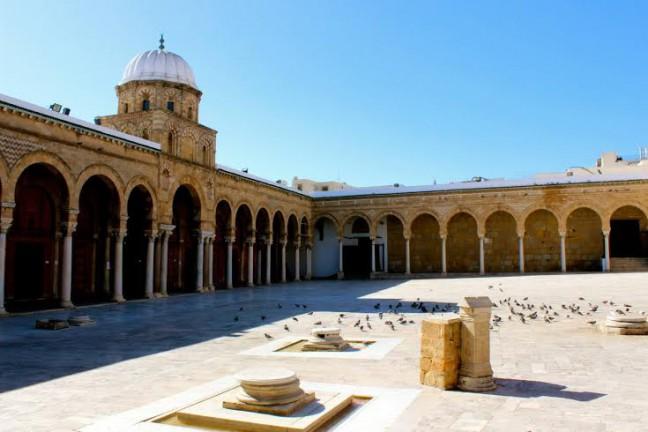After a two-year hiatus due to violence related to the Arab Spring uprising, University of Wisconsin is again offering a study abroad program this semester in Tunisia.
The Emerging Identities in North Africa program, offered through The School for International Training, began running the 11-week program in fall 2011. According to the study abroad office website, students stay in Tunisia for the first seven weeks with the option to relocate or renew their homestay for the final four weeks. They can choose study either French or Arabic.
During fall 2012, SIT moved the program to France for the remainder of the semester due to the violence taking place in Tunisia at that time, Ron Machoian, International Safety and Security Director at UW, said in an email to The Badger Herald.
Machoian said the program was suspended effective spring 2013 when the U.S. Department of State issued a travel warning for Tunisia. Once that was lifted, IAP began to offer the program again this semester, he said.
The recent Bardo Museum attack in downtown Tunis on March 18 caused a national stir, but the program will continue for the rest of the semester for the time being, he said.
“In general, a program is curtailed once it is determined that the growing risk in a location begins to diminish the likelihood of successful learning experiences and could pose a threat to the well-being of students or employees,” Machoian said.
Following the incident, SIT took precautions to ensure students were not in harm’s way, examined the situation and reviewed security protocols, he said.
Machoian engaged in a teleconference with representatives from 20 U.S. colleges and universities two days after the incident.
Representatives discussed public knowledge and private assessments from the U.S. Department of State’s Overseas Security Advisory Council, insurance companies’ foreign security teams and companies operating in Tunisia.
“The shared conclusion is that the events in Tunis were an isolated tragedy that likely does not change the overall safety for students there now,” Machoian said.
Teddy Varelis, a UW student currently in the program, said her professor contacted her immediately after the situation occurred. Students were instructed to immediately return to their host families and remain there until the situation was safe, she said.
Varelis said U.S. and Japanese tourists have special security in Tunisia, which she said those embassies require. She said she must register all travel within the country, and guards often arrive at hotels to check on students.
“Since the terrorist attacks in 2002 and the attacks on the U.S. Embassy in 2012, people are afraid to come,” Varelis said. “People have thanked me for coming to Tunisia.”
The U.S. Embassy in Tunisia has remained in contact with Varelis since the incident, but she said she is excited the students have not been evacuated.
Varelis said the country has great hospitality and wonderful food.
“It’s the most interesting mix of Europe and everything that does not feel familiar,” she said.
She also expressed how impressed she was with SIT.
“The program itself is really well done,” Varelis said. “They’ve got the security, culture and language locked down. People who worked on the new government are daily lecturers. I feel really privileged to be a part of this organization.”


